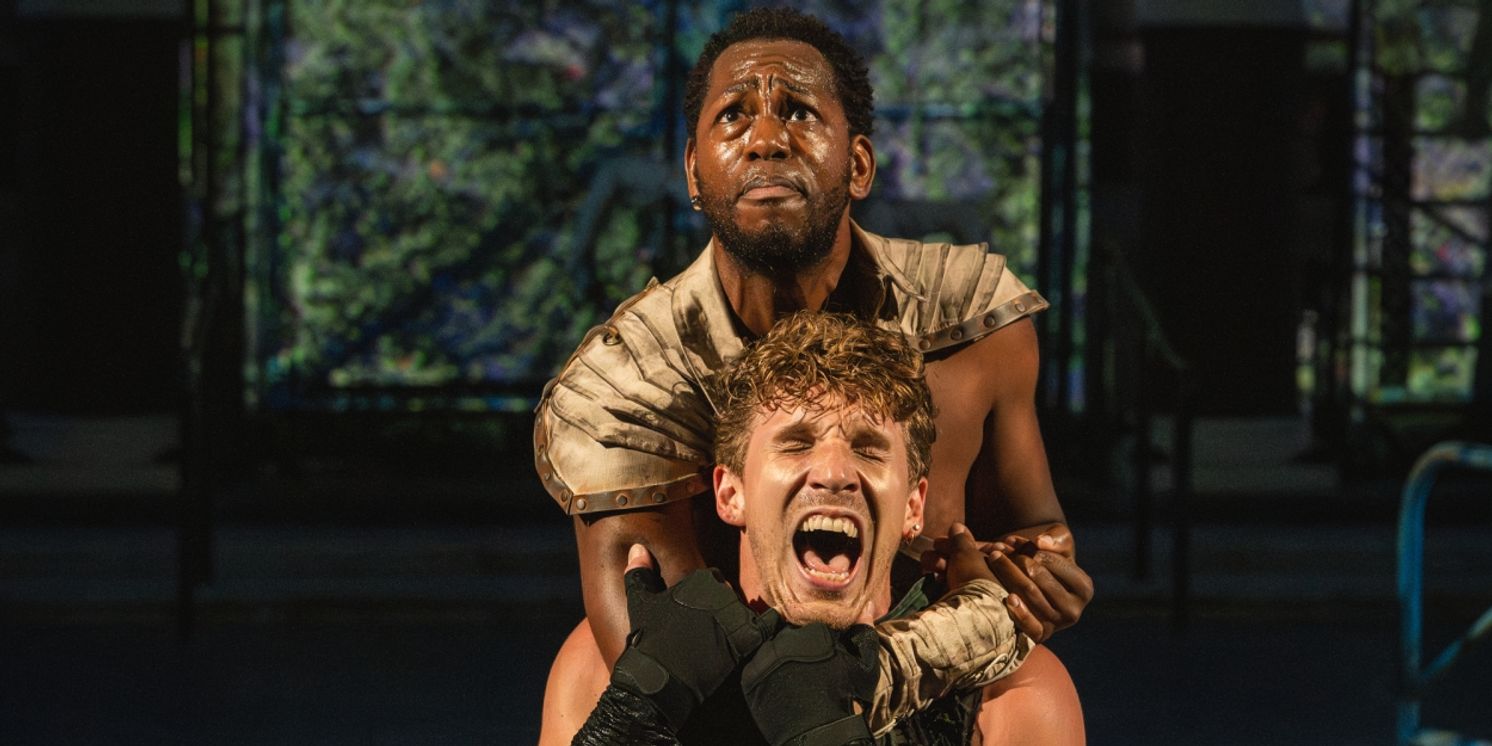Review: MEMNON at The Getty Villa
A contemporary riff on classic drama that combines the beauty of both.

In the Getty Villa and Classical Theatre of Harlem’s world premiere of Will Power’s new play Memnon, audiences are treated to a gripping, emotionally-charged story of an overlooked Ethiopian hero from the Trojan War. Though the language is easy to imagine as the foundation for a more ostentatious spectacle with masks and hordes of performers peopling the chorus, the sweeping narration is deftly relayed by a mighty fistful of actors and a polished trio of dancers in a way that allows grand battles and weighty sociopolitical musings to service the intrinsic poetry of the contemporary text. I had the pleasure of reviewing Power’s Detroit Red a few years ago and remember being struck by the ways his work felt so comfortable with the limitations of theatre that it transcended to an intimacy that felt cinematic. Similarly here, the language accessibly relays a huge amount of historical and mythological information in a way that feels anything but declamatory or didactic.
Though not necessarily the typical purview of presenting classical theatre in an amphitheater, I was aware of the ways the narrative emotionally affected me and those around me. When Nestor mourns the death of his son Antilochus or Helen resolutely affirms her conscious existence as political fodder, Power has fused the legendary figures with such tender humanity that one can experience their woes as heartaches and sorrows rather than mythology. A lively monologue detailing the oft-forgotten battalions who aided the Trojans from Asia and Africa rouses audible approval from the audience and Memnon’s own philosophy about his incomplete status as an other and outsider to Troy garners murmurs of recognition from the crowd. Here’s the beauty though: this is not a dense lecture scolding one for not having heard of the titular king. Rather it is a thorough, thoughtful reflection that questions Memnon’s erasure from common knowledge while advocating for inspection of the ways Memnon’s fate is replicated through contemporary society.
In the title role, Eric Berryman perfectly rises to the challenge set forth by the piece. Somehow, every wince and guttural whisper reverberates through the night, carrying the heft and range of the fabled warrior who was considered a match for even Achilles. Daniel José Molina’s Antilochus is feisty and unruly, perfectly embodying an impudent boy overly eager to prove his merit in battle. As Helen, Andrea Patterson exercises great subtlety, sitting as a statue when we first meet her, listening as men discuss the best ways to maintain her current location. In an ingeniously-designed costume by Celeste Jennings, many scenes later, Patterson has shed her external shield and bares her heart in confidence to Memnon. The direction and design has carefully considered— rather than ignored— the varied races of the actors in ways that highlight the intricacies of the tangled power dynamics. From iconic characters to lesser known figures, Jennings and the cast convey mountains of exposition upon every entrance, catching us up visually on the necessary circumstances. When we meet Memnon, his earth tone boots pit him at immediate odds with Priam’s smartly-tailored navy suit. Achilles’ eventual entrance sees him clad in brooding blacks and greys, hinting us in to his state of mourning for Patroclus and lending him an appropriately emo air.
It would be hard to imagine a more beautiful venue for this work, and hard to recommend a better evening one could spend at the theatre this summer. Emmanuel Brown’s fight choreography is stirring and graphic and Yea Eun Nam’s projection design is sparse enough to set the scene without distracting from the action. Director Carl Cofield has humbly prioritized the humanizing elements of the production over any sort of appealing stage imagery, and the effect is a production with a lasting, heartfelt impact. In a whirlwind of 80 minutes, the Getty is sure to have audiences thrilled with their annual offering.
Reader Reviews

Videos

